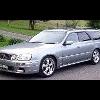Oils For The Track
Announcements
-
Similar Content
-
Latest Posts
-
And I don't want to crap on their enthusiasm, but goddamn that is dumb. The money they're paying, for crapy old Dattos, then having to scrounge to find parts (and, being Seppos, they simply MUST upgrade and/or factory restore every single part of the car within 2 weeks of buying the car!) is just silly. "Oh, it's my dream car!..." </wistful, dewy look in the eye>
-
I agree, and it is already happening if you look at the new members from the USA, lots of GTTs and even GT no T being picked up because they find/afford a GTR
-
How you pulled your fuel filter and split it open to take a look inside of it?
-
By GabsReDeal · Posted
I removed the fuel pump to take a look at the tank. The sender unit is very rusty. Took a look at the tank and it is also quite rusty. Right at the base of where the fuel pump sits, there's a buildup of what seems to be rust particles. I did find new OEM fuel tank (17202-01U01) and sender unit (25060-01U00) from amayama which would set me back around €900 including shipping and customs. I most likely would need a new fuel pump as well. I'm going to be honest, I have been driving for around 6 years now and this is the only mechanic I went to apart for once (Last year I took my Porsche 924 to a guy who specializes on them). I've got a good relationship with him and he's always there to assist, even coming over to my garage at times for my convenience since the car was not starting. I believe he's got over 20 years of experience, but this is not the first time he let me a bit down on some basic diagnosing. I do not want to switch over to someone else, but I'd be lying if I said that it did not cross my mind. -
If the GTR keeps climbing to ridiculous out of control prices, it will drag the GTST up as time goes on. Those who cant drop silly $ on the GTR, will then start to drop big $ on the GTST.
-








Recommended Posts
Create an account or sign in to comment
You need to be a member in order to leave a comment
Create an account
Sign up for a new account in our community. It's easy!
Register a new accountSign in
Already have an account? Sign in here.
Sign In Now